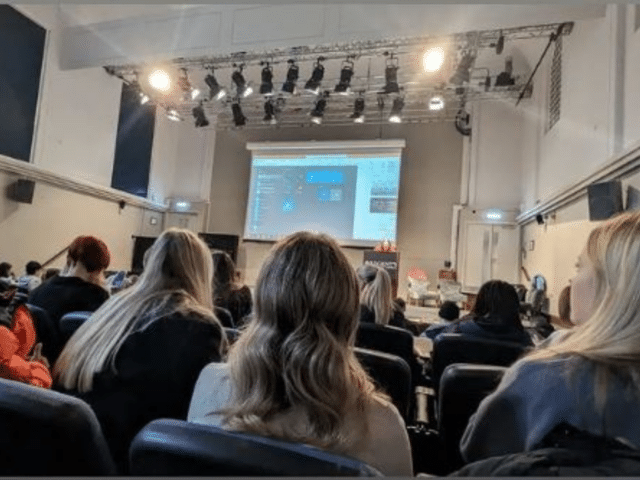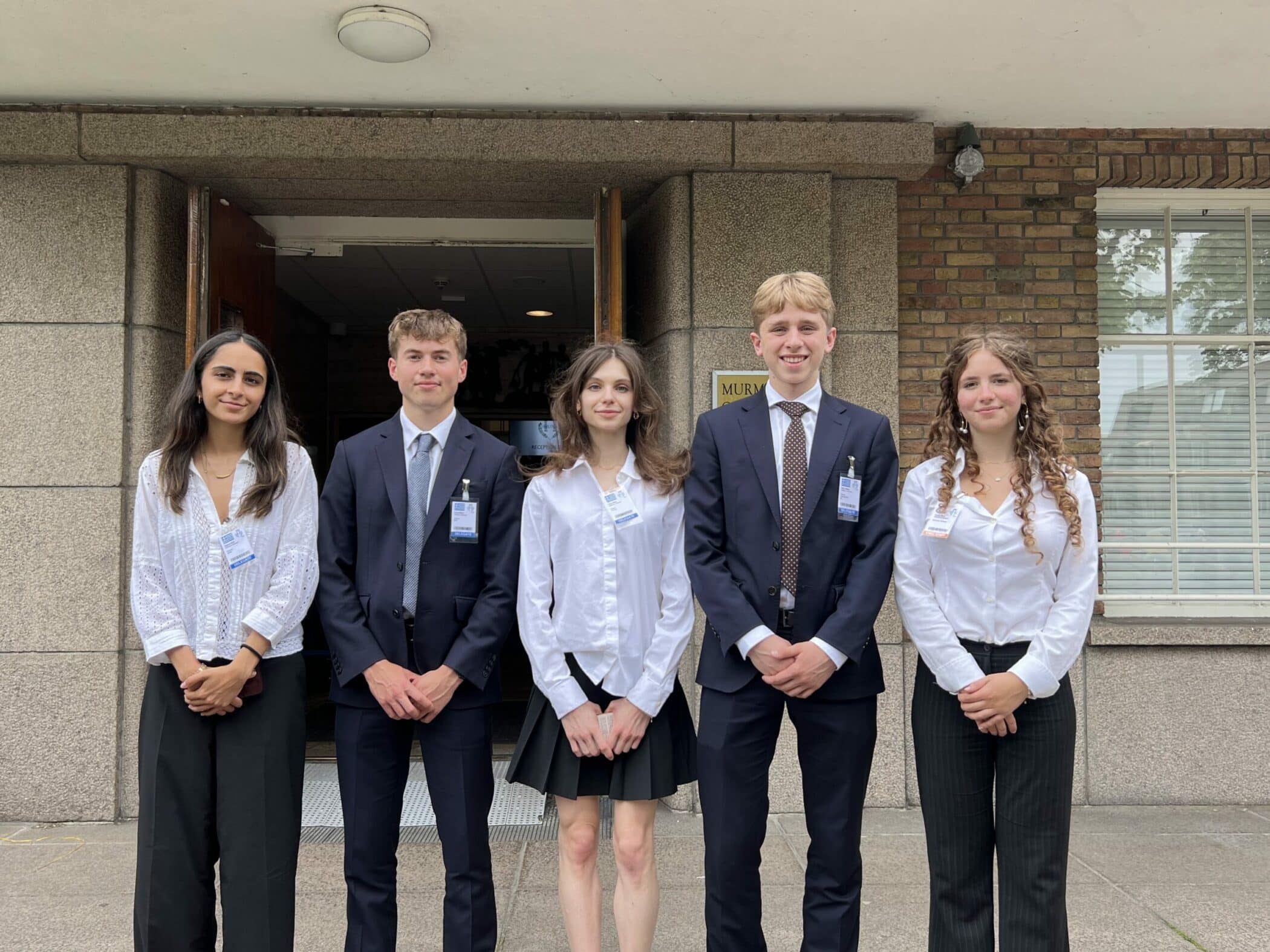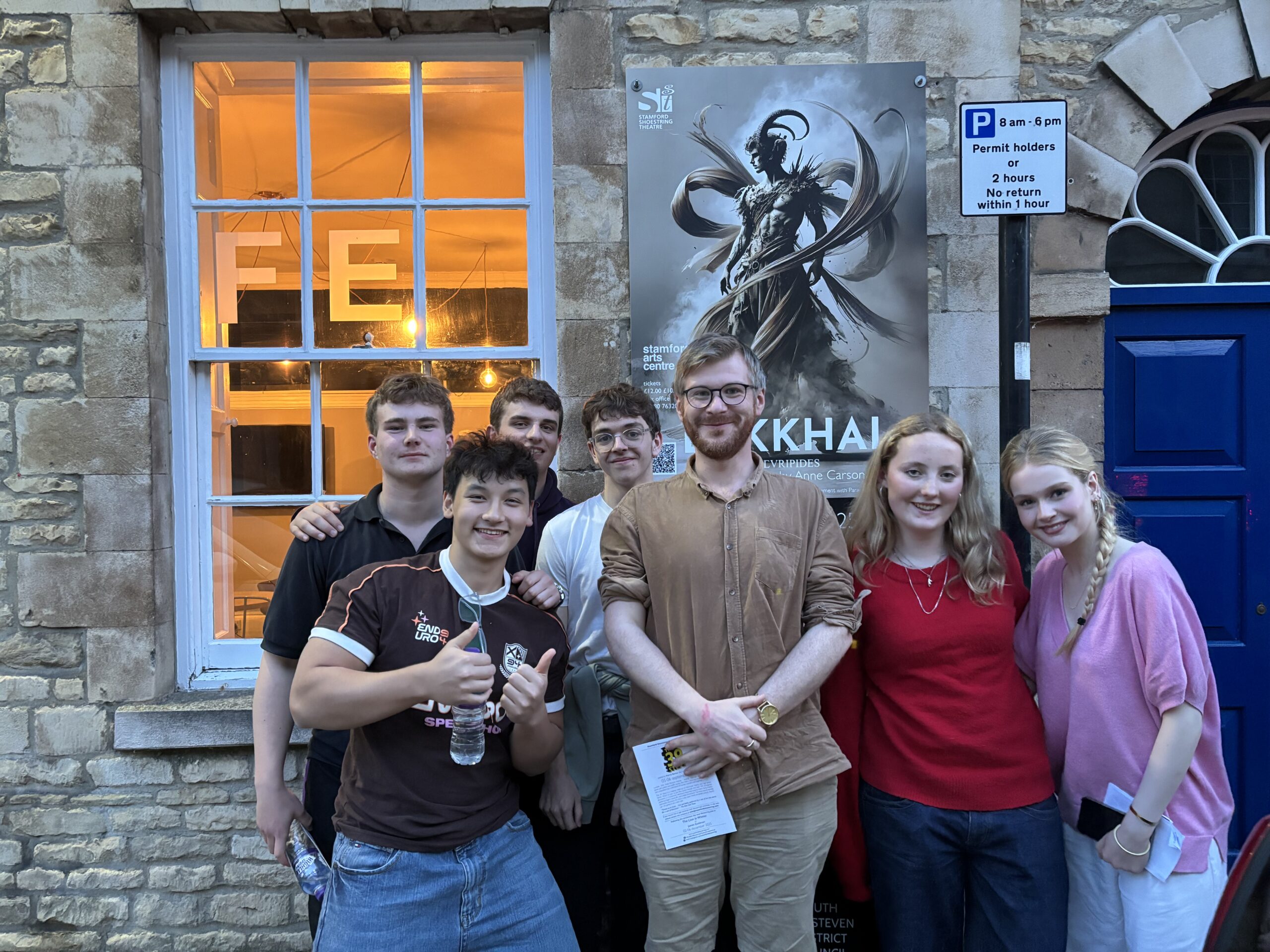
On Wednesday, several A-level and IB pupils attended a conference at Regents University London to expand their knowledge of contemporary research in the field.
Professors Kimberly Wade – Eyewitness Testimony
The first lecture was delivered by Professor Kimberley Wade (University of Warwick) who presented research into eyewitness testimony, a topic pupils have just finished learning. Here, Professor Wade introduced a brief history of eyewitness testimony sharing that it’s the most common form of evidence used in convictions but is also the most likely to be contaminated unlike physical evidence. In the first 325 DNA exonerations, 72% were found to be misidentified eyewitness accounts which led to the remainder of the lecture exploring various factors that can wrongly influence an eyewitness account. For example, a confident witness can influence a jury, even when they’re wrong, and the presence of a perpetrator wearing a hat can remove important features that victims use to identify them in a line-up. A large part of her lecture explored the concept of post-event discussion, which is the act of discussing a crime with a co-witness after the event which can distort or implant memories. One example of this was demonstrated in research whereby participants were asked if they saw “a” broken headlight or “the” broken headlight. Those in the latter condition reported seeing a broken headlight more than the former (Loftus and Zanni, 1975). Various experiments have demonstrated that leading questions can lead participants to wrongly believe different colours, buildings, perpetrator features or speed of vehicles.
Masha Remskar – Social Media
Masha Remskar (University of Bath) shared the benefits and drawbacks of social media on health and society. She explained that 50% of the global population use as least one social media platform up to 7 hours a day. The benefits of this include promoting social connections, creating community and decreasing loneliness but it can also increase social comparisons and increase depression and anxiety. On a wider scale, the benefits of social media have led to the creation of new job roles, ways of campaigning for causes, and enables information to be shared freely however, misinformation is common, communities and campaigns aren’t always positive and social media is replacing hobbies and sport. Masha finished her lecture by explaining the difficulties in researching a field which changes quicker than it takes to research. The length of time to design and conduct research as well as measuring how many platforms people use, the time spent on each platform, and the refusal of platforms to share user data restricts the speed in which research can produce results.
Dr Megan Birney – Accent bias
Lastly, Dr Megan Birney (Staffordshire University) explored the unconscious biases attached to accents. She explained that accents have an evolutionary basis as they allow us to identify where people are from, their educational level and socioeconomic status. Research into this area is diverse, with results showing that ‘non-standard’ accents are judged less suitable for leadership positions, less effective educators and more likely to commit crime (Dragojevic et al,. 2021). Surprisingly, research also suggests that accents have a stronger impact than race. Research has found that white children were more likely to prefer a black English-speaking adult, than a white French-speaking adult (Spence & Imuta, 2020) and Birney et al. (2020) found that participants who heard a strong Eastern European accent considered the individual to have lower intelligence and to be a threat to the UK, whereas this wasn’t present for weaker Eastern European accents.
Overall, an insightful day for those students (and teachers) who attended.
Follow us on @OakhamPsychology to read about contemporary research and life at Oakham.





